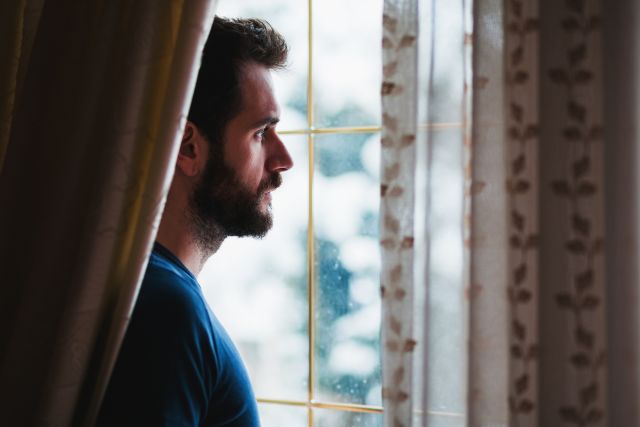Updated on December 15, 2023.
The holidays can be a time of tremendous joy. But when you’ve experienced a loss—especially if that loss is recent—the season can cause painful feelings of sorrow to grow or resurface.
Grief manifests differently in different people. It often accompanies the passing of a loved one, but can occur with other losses, like a divorce or being fired from your job. When you’re grieving, it may be marked by crying, sleeping too much or too little, overeating, a lack of appetite or avoiding social situations. Some people may be at greater risk for complicated grief—a type that doesn’t get better over time and interferes with their ability to function.
Grief and complicated grief are different from major depression, but depression can develop at any time during the grieving process. People with a history of depression or anxiety, especially if it is undertreated or untreated, may be more vulnerable to the effects of grief.
If you’re worried about grieving over the holidays, try these strategies—so your feelings don’t become overwhelming.
Reach out to others
“Many people bemoan the fact that they need to be around friends and family during the holidays. But, in truth, it is incredibly helpful to be with them during a difficult time,” says Jeffrey Cluver, MD, Medical Director of Psychiatry affiliated with Trident Medical Center in Charleston, South Carolina.
“Yes, family can be stressful and annoying,” Dr. Cluver notes, “but they can also offer tremendous support and comfort when you are grieving.” If you’re not feeling up to it, however, remember it’s okay to cancel plans—even at the last minute. Your close friends and family will understand.
Acknowledge and accept your feelings
There isn’t an expiration date for heartache. It's okay to be sad—even during the holidays. “Allow yourself to feel those emotions,” Cluver says.
“Time helps, but grief won’t go away on its own,” he explains. “You can’t just wait it out. You need a place and way to process your feelings of loss.”
Establish healthy boundaries
The holidays are typically fraught with obligation after obligation. You don’t have to accept every invitation or attend every event, especially those that may worsen your grief.
“Separate out the people and places that are supportive versus those that are toxic,” says Cluver. But don’t say no to all events, he adds. Remember there is a happy medium between not engaging in triggering events and being reclusive.
Simplify your plans
If the thought of throwing an elaborate dinner or event feels overwhelming, take an easier, less stressful approach. “Focus on the people, not the activity,” Cluver says. “Don't get caught up insisting on hosting the perfect event.”
Create new customs
When your seasonal traditions are closely tied to a loved one who has passed away, it’s okay to change things up. This can include traveling or hosting the holidays yourself, or even just cooking new foods. You can find ways to honor your loved one, too, like making a group donation to a favorite charity.
“Ask yourself how this person would want to be remembered,” Cluver suggests. “Celebrating a person’s life can change the lens through which you are viewing your loss.”
Focus on healthy habits
“Don’t cope with grief or stress by drinking too much alcohol or engaging in other unhealthy behaviors,” Cluver says. “If you are dealing with grief and underlying depression or anxiety and add other substances, it will make everything worse.”
Excess alcohol or drug use may temporarily ease your pain, but it can also damage your body and complicate your long-term recovery. In contrast, eating a healthy diet, exercising and getting adequate sleep may help improve your mood and maintain good health overall.
Look for ways to give back
Whether it’s serving Thanksgiving dinner at a local homeless shelter, organizing a holiday coat drive or joining an organization important to your deceased loved one, volunteering can help you better cope with your grief during and after the holiday season. Research shows that giving your time to a good cause can reduce the risk of depression, lower stress and reignite a sense of purpose, among other benefits.
Ask for help if you need it
“If there is a day or two over the holidays where grief hits you especially hard, that’s okay,” Cluver says. “But if it settles in and doesn’t go away, you may need to seek professional help.”
He adds that you should also reach out if you’re struggling to the point that it’s difficult to function. These feelings may suggest complicated grief or depression. Talk therapy, with or without medication, can get you back on track. Ask your primary care doctor for a referral to a therapist, who can help you handle your grief around the holidays and in the days moving forward.
If your grief is overwhelming and you’re thinking of harming yourself, it’s important to get help right away. Head to an emergency room, dial the National Suicide Prevention Lifeline at 1-800-273-8255 or call, text, or chat 988. You can also text HOME to the Crisis Text Line at 741741.






